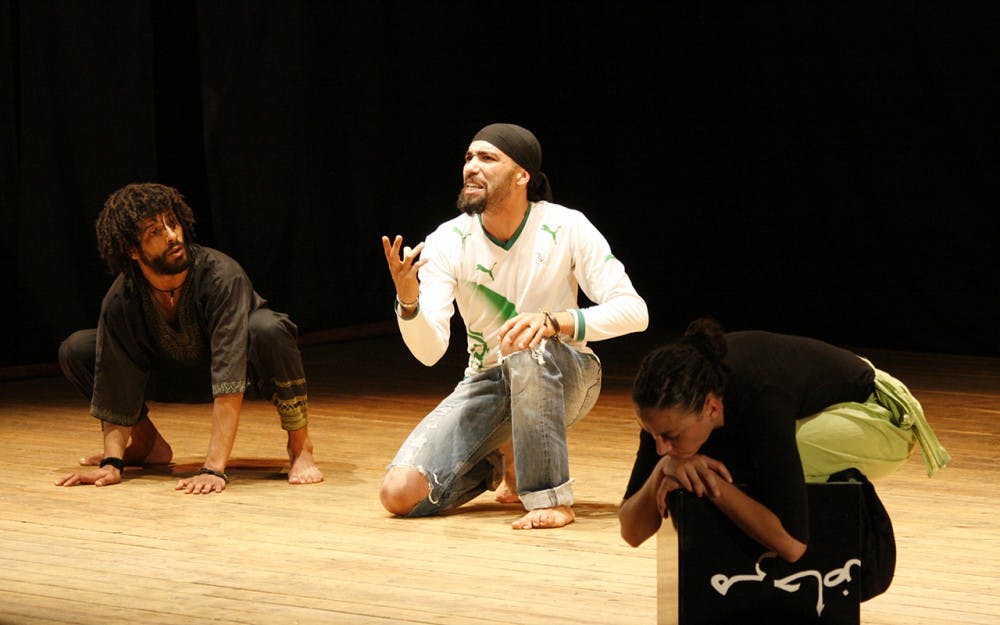Algerian theater troupe Istijmam will bring a traditionally inspired performance to IU at 7:30 p.m. Friday in the Wells-Metz Theatre. The play includes classic elements of Algerian theater such as limited props, a cast of only three members and heavy reliance on audience participation.
“The lack of props opens a larger space to imagination and creation for the actor and the spectator,” Director Jamil Benhamamouch said. “This makes the interactivity between them stronger, so then the spectator becomes a co-creator instead of being a simple watcher.”
Istijmam will perform the play “Apples/Et’teffeh,” a story about a man who has lost his job and is frustrated with a government that has made daily life incredibly difficult.
As the bilingual title suggests, the play combines English with sections of spoken Arabic, the meanings of which can be inferred contextually, according to Istijmam’s website.
It starts with the man’s inability to buy apples to bring to his wife because the produce salesman believes their value is greater as a display item than as food.
The play was written by the late Abdelkader Alloula after the uprising in Algeria in 1988. Benhamamouch is his nephew , and his daughter Rihab Alloula will act in the production.
Traditional Algerian theater typically includes a goual, which is an actor who plays many different characters. All of the actors in “Apples/Et’teffeh” are gouals.
“We are mostly interested in the relation between the goual and the character and their impact on the spectator,” Rihab said.
The messages found in “Apples/Et’teffeh” are not foreign concepts, though they were written in a different country, said Jane Goodman, associate professor of anthropology at IU. Goodman has been traveling with Istijmam for her research on Algerian theater traditions and will return to Bloomington with them to bring the performance to students, who she said can relate to the production.
“I think they’ll find a lot of similarities within their own society, people losing their jobs overnight, places where they work disappearing, that kind of thing,” Goodman said.
Istijmam is working with Center Stage, a program created by the United States Department of State’s Bureau of Educational and Cultural Affairs and produced by the New England Foundation for the Arts. Center Stage’s goal is to create a cultural transfer using the arts, according to its website.
Istijmam shares that goal, Rihab said.
“For us, it is very important to exchange, to be in contact with other cultures,” Rihab said. “We came to the United States with the wish of offering the American public another way of living theater.”




